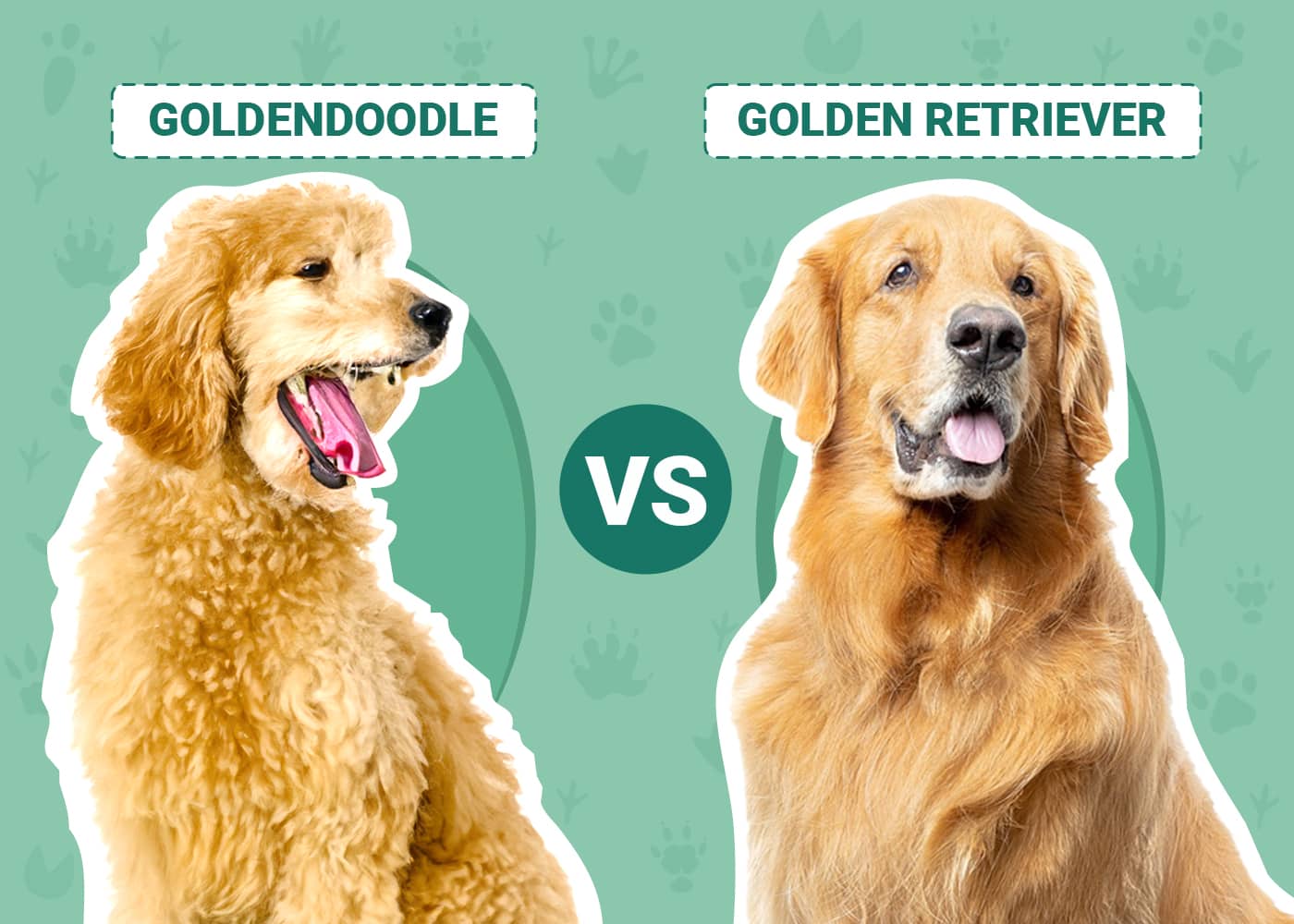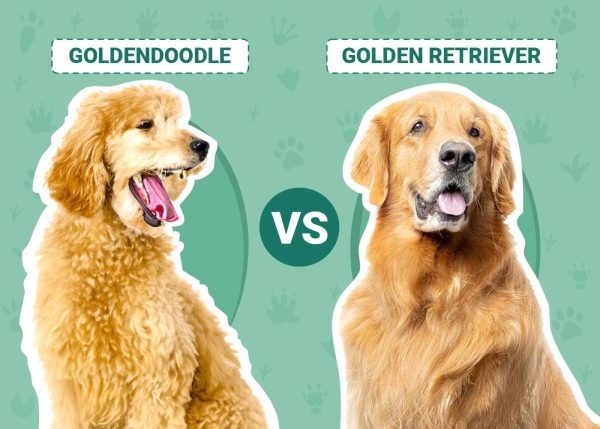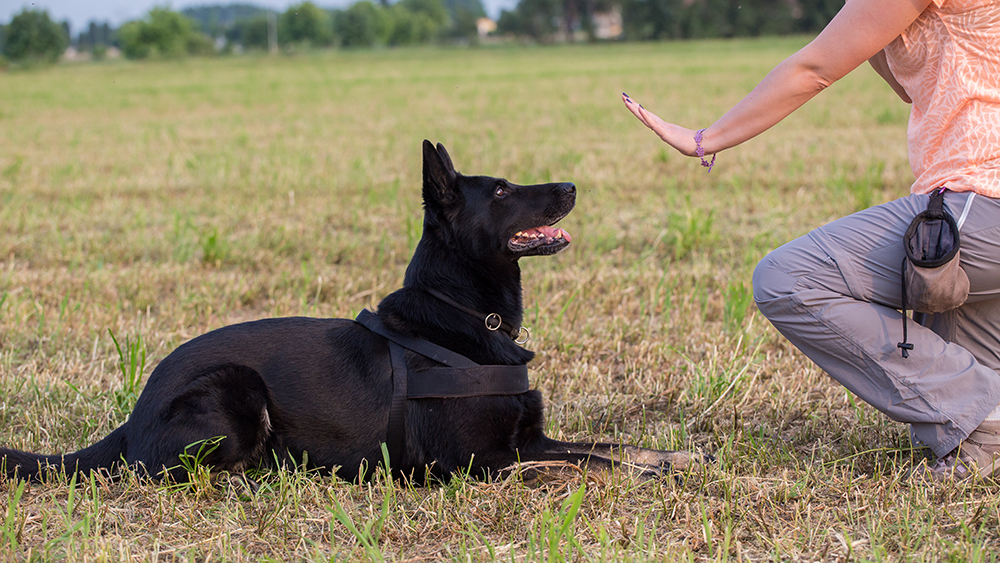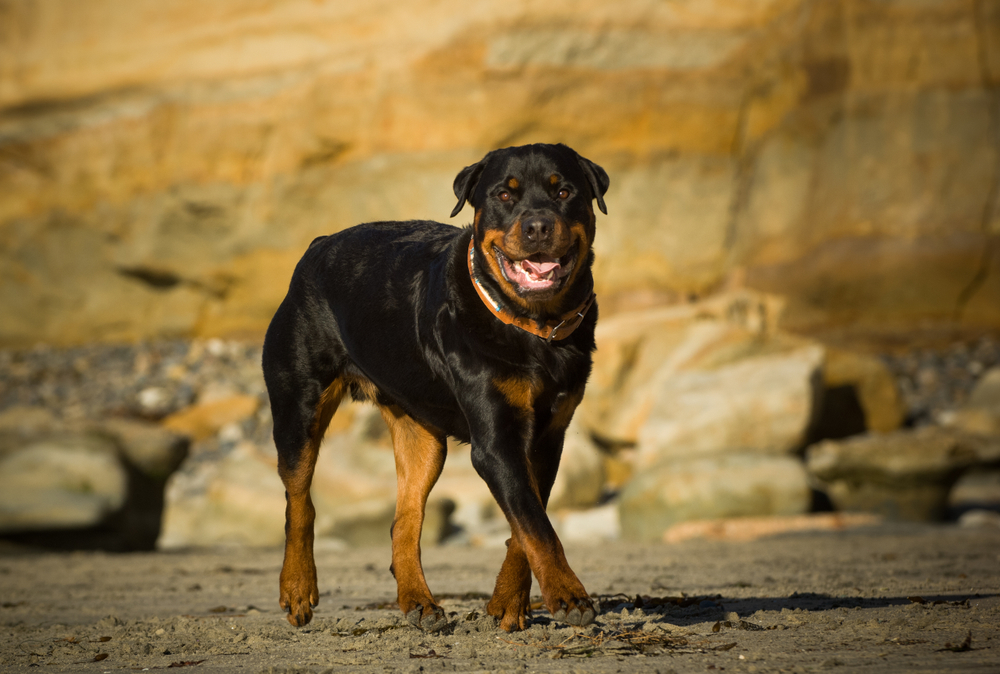Click to Skip Ahead
Deciding on your perfect future dog companion can be an incredibly challenging task, especially when choosing between two related but entirely different breeds. The Goldendoodle is a cross between the Golden Retriever and Poodle, and while it inherits its personality from Goldies, it looks like an entirely different breed. Both these dogs are family-oriented, being gentle and sweet towards their owners, but towards strangers and other pets as well.
While they are similar, some significant differences may help you decide. Our article below might help you put these two breeds in perspective and reach your final decision.
Visual Differences
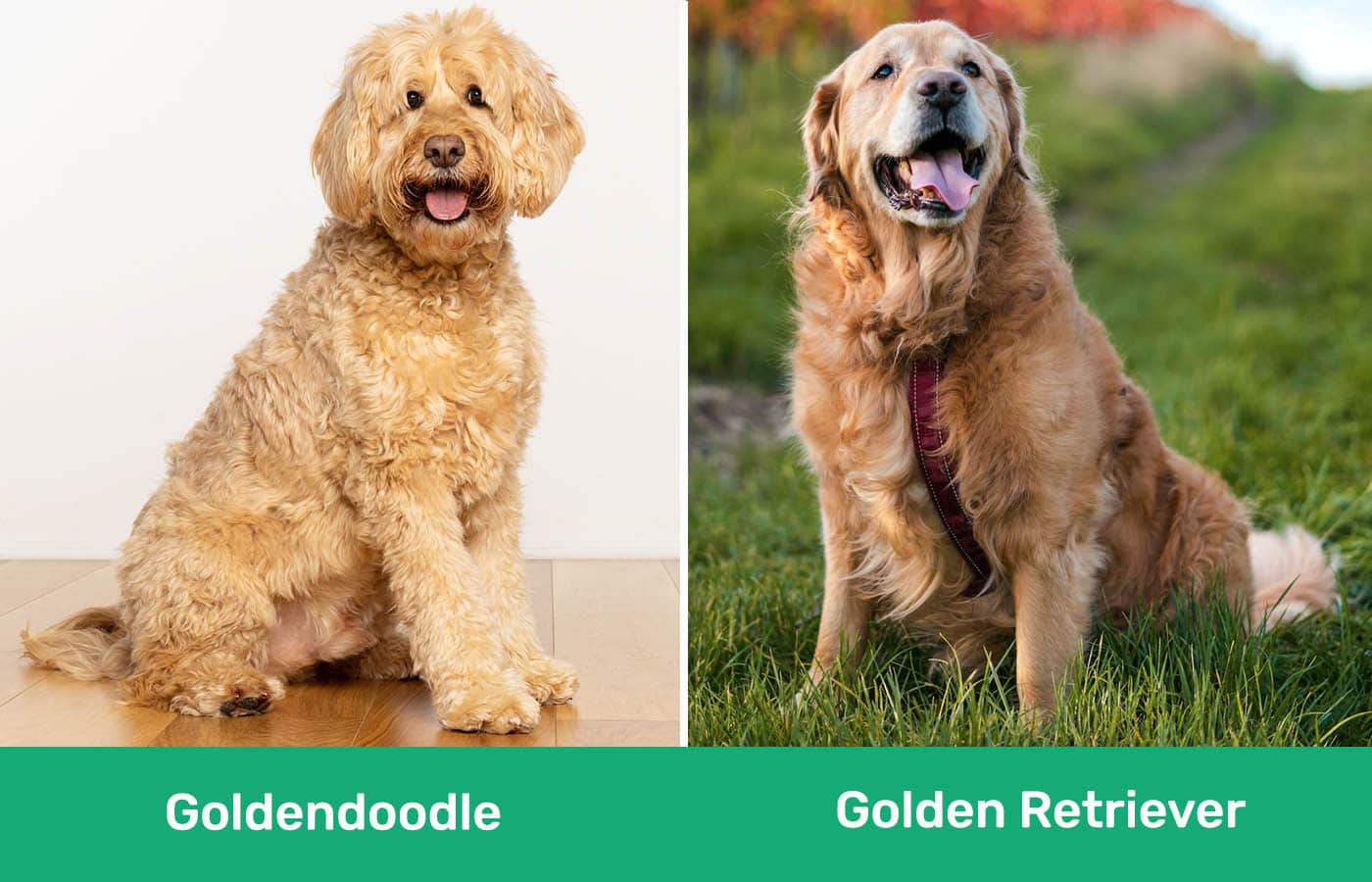
At a Glance
- Average height (adult): 20–24 inches
- Average weight (adult): 50–90 pounds
- Lifespan: 10–15 years
- Exercise: At least 30 minutes to an hour a day
- Grooming needs: Moderate
- Family-friendly: Yes
- Other pet-friendly: Yes
- Trainability: Willing to learn, intelligent, sensitive
- Average height (adult): 5–24 inches
- Average weight (adult): 55–75 pounds
- Lifespan: 10–12 years
- Exercise: 2+ hours a day
- Grooming needs: Basic grooming
- Family-friendly: Yes
- Other pet-friendly: Yes
- Trainability: Intelligent, eager to please, quick learner
Goldendoodle Overview
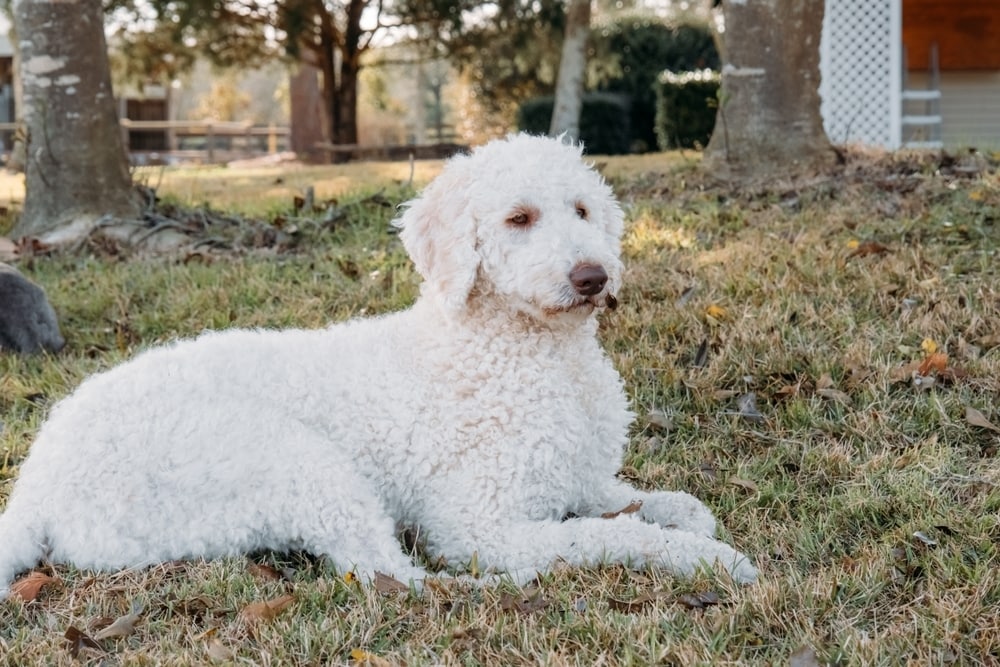
Personality
Goldendoodles are among the most popular mixed-breed dogs, with their adorable personality and lovely curly coat. Goldendoodles are extremely friendly dogs, offering unconditional love to their pet parents. These pups have it in their nature to be curious and love exploring new places. They are loyal and calm dogs. Their easy-going temperament makes people adore them, and their gentle spirit and nature keep them family-oriented.
Because of their highly friendly and outgoing personality, they will befriend any stranger, making them unsuitable as watchdogs. They are perfect companions for outdoor family adventures and activities.
Exercise
Goldendoodles require a lot of exercise, with recommended daily sessions. These dogs are even more energetic as puppies, so daily outdoor playtime is vital. If they don’t get enough daily exercise and playtime, they might become frustrated and destructive over time, causing damage to furniture and other items in the house.
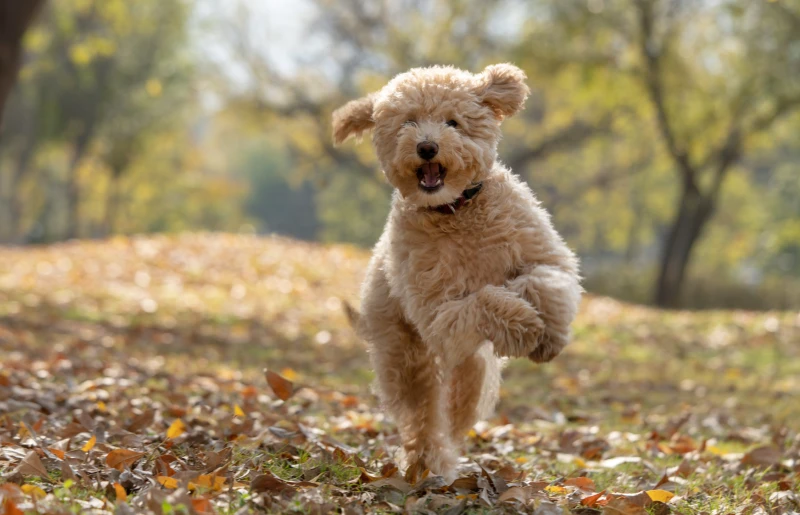
Training
Goldendoodles are very easy to train, mainly because of their intelligence and eagerness to please their owners. When training these pups, you need a lot of patience and tolerance, as the lessons will need to be both repetitive and fun for them. Use a lot of delicious treats and other positive reinforcement to motivate your Goldendoodle, and they will show excellent progress. Because these dogs are sensitive, harsh methods and punishments won’t do you any good and may have a negative effect on the training.
Health
Like any other breed, Goldendoodles are susceptible to some health issues. However, Goldendoodles are known to have fewer problems than their parent breeds, the Golden Retriever and Poodle. You’ll need to find a reputable breeder to get your Goldendoodle from and ensure they’ve done all the testing needed.
Goldendoodles are predisposed to some heart conditions and orthopedic problems. Regular check-ups once or twice a year will help keep their health in check, especially combined with a healthy diet.
The most common health issues in Goldendoodles are:
- Hip dysplasia
- Elbow dysplasia
- Degenerative myelopathy
- Progressive Retinal Atrophy
- Gastric Dilatation
- Hypothyroidism
Grooming
Goldendoodles require a lot of regular maintenance to keep their coat velvety soft and clean. Because they have long ears, they need to have them cleaned weekly or biweekly to reduce any risk of infections. On the other hand, their coats will need daily to weekly brushing. Because they inherit their coat texture mainly from Poodles, it is recommended to brush it frequently to prevent matting and keep it soft. Make sure to bathe your Goldendoodle once every 6 weeks or so.
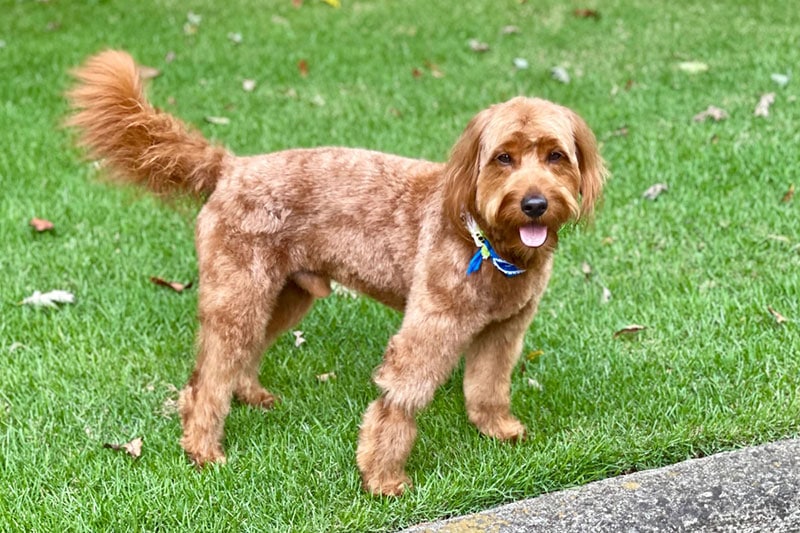
Suitable For:
- Families with children
- Highly active people
- Beginner pet parents
- Active and energetic owners
- Seniors
Goldendoodles are perfect for families, especially those with children, as they are very affectionate and gentle. They are excellent with kids as they are highly energetic dogs that will match the dynamic of your kids. They adore spending time outdoors, so if you have a spacious backyard, consider this breed your potential companion.
Golden Retriever Overview
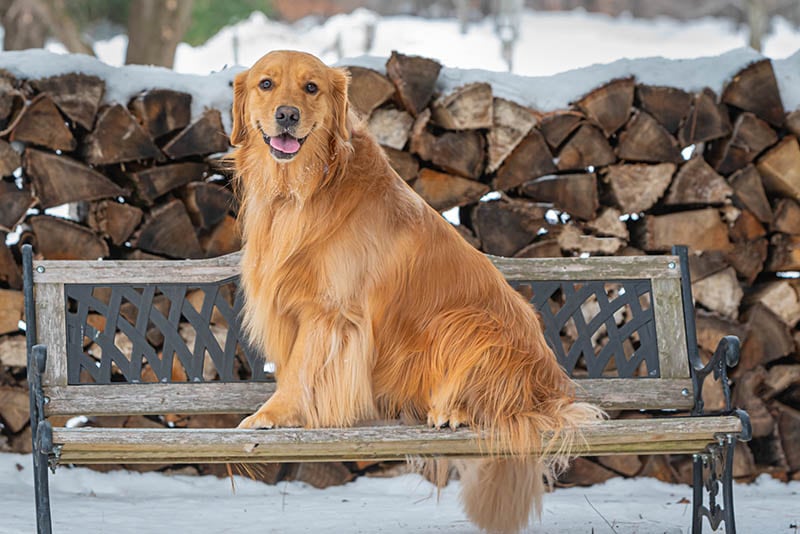
Personality
Golden Retrievers are outgoing, extroverted dogs eager to please their owners and spend as much time bonding with them as possible. They are even-tempered and reliable pooches, so they are popularly used as service dogs. They are sensitive to people’s feelings and are very affectionate and loving. Their soft nature makes them perfect for families, and they even get along with strangers and other pets. They adore outdoor playtime, and because of their retrieving origins, they adore working and fetching things for their pet parents.
Exercise
Since sport hunters used Golden Retrievers, they are very energetic dogs in need of proper outdoor time. They require at least 2 hours of daily activity to stay physically and mentally healthy. Their most adored activities are running, fetching, and swimming.
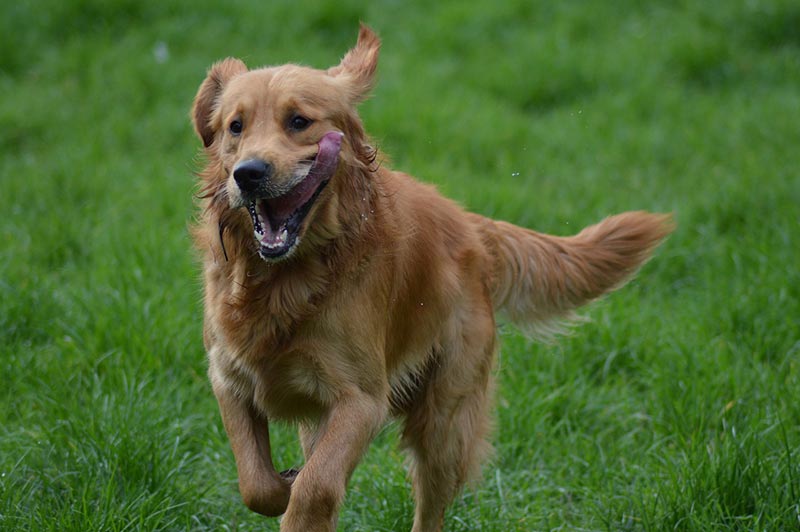
Training
Like any other breed, Golden Retrievers need proper socialization and training. It is best to expose them to as many new people and dogs as possible for them to get a sense of openness from an early age. Because of their large sizes, they must become well-mannered, especially learning not to jump on people. Training will ensure you maintain a strong bond with your Goldie, filled with mutual trust.
Health
Golden Retrievers are a generally healthy breed but have some health conditions that may develop during their lives. They are prone to hip and elbow dysplasia, ear and eye infections, and other more severe conditions such as heart issues.
The most common health issues are:
- Hip dysplasia
- Elbow dysplasia
- Cataracts
- Pigmentary uveitis
- Progressive retinal atrophy
- Subvalvular aortic stenosis
Grooming Needs
Golden Retrievers have a double coat, meaning you can expect them to shed a lot. Brushing them once or twice a week will remove a lot of dead hair, lowering the amount of hair on your furniture. A Golden Retriever doesn’t need much other maintenance besides regular hair brushing, nail trimming, and an occasional bath.
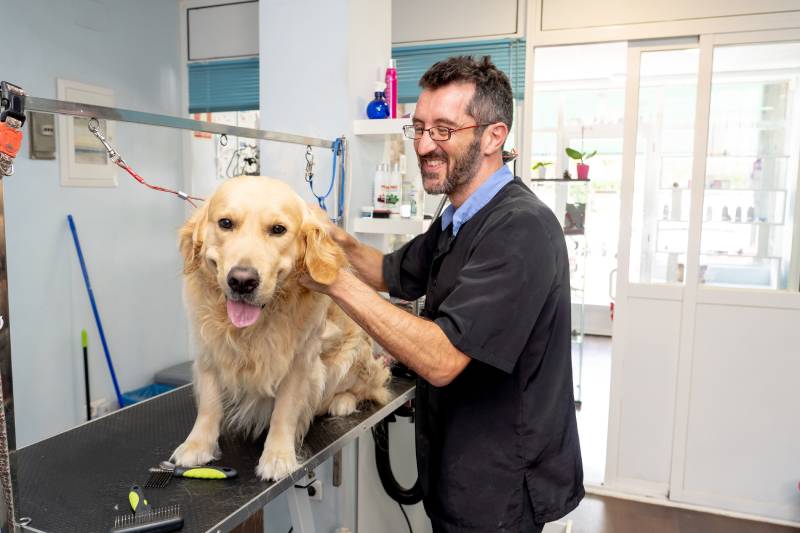
Suitable For:
- Families with older children
- Seniors
- People with spacious backyards
- People with disabilities
- First-time dog owners
Golden Retrievers are fantastic family dogs, especially families with children. Because of their larger size, they may not be ideal for small children and toddlers because they might accidentally knock them over during playtime. They are fantastic service dogs, making them suitable for seniors as well. They need a lot of outdoor time, so they are not the perfect choice for people in smaller apartments.
Which Breed Is Right for You?
When choosing your ideal future pet, you’ll need to consider several factors beforehand. These two breeds are family-oriented, and even though the Goldendoodle derives from the Golden Retriever, they have many differences that can affect your decision.
The main difference is their appearance because Goldendoodles inherit some of their appearance from Poodles, with their curly, low shedding coats. Golden Retrievers have a different coat texture, shedding a lot throughout the year. Their personalities are very similar, with both pups being sweet, gentle, and very family-oriented. Whatever decision you make will be the right one because both these dogs offer unconditional love to each family member, creating strong everlasting bonds.
Related Reads:
- Sheepadoodle vs Goldendoodle: The Differences (With Pictures)
- Irish Doodle vs Goldendoodle: The Differences (with Pictures)
Featured Image Credit: (T) Rena Schild, Shutterstock | (B) Emil Priver, Unsplash

